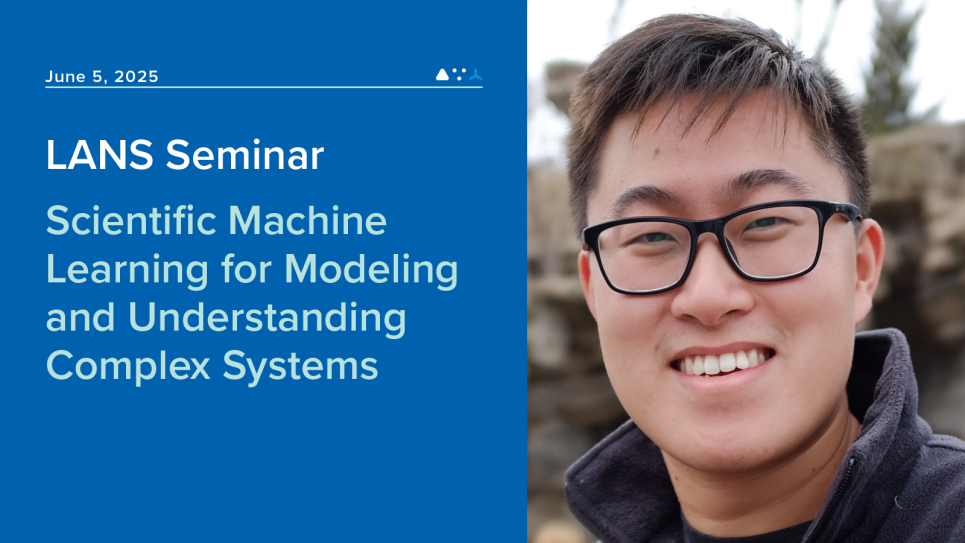
Scientific Machine Learning for Modeling and Understanding Complex Systems
Complex systems in nature—from climate to materials science—often exhibit strongly interacting, high-dimensional dynamics that are difficult to characterize, model, and understand. In the scientific community, there has been a growing interest in using modern machine learning (ML) tools to tackle these systems by identifying relevant physical features, accelerating expensive simulations, and solving difficult inverse problems. However, despite significant advances over the past decade, we are still learning how to effectively use ML in science and engineering. My work focuses on developing foundational ML methods for modeling and understanding complex systems from high-dimensional chaotic dynamics to many-body quantum systems. In this talk, I will introduce novel contrastive learning-based approaches for training physically consistent ML emulators and performing high-dimensional simulation-based inference. I will also discuss new ML methods for efficiently simulating interacting quantum systems. These advances demonstrate how we can use ML to solve scientific problems by combining tools from representation learning and generative modeling with theoretical insights from statistics, dynamical systems theory, and mathematical physics.
Bio: Peter Y. Lu is an Eric and Wendy Schmidt AI in Science Postdoctoral Fellow at the University of Chicago working at the intersection of physics and machine learning. In August, he will be starting a new position as an assistant professor in the Department of Electrical and Computer Engineering at Tufts University. Peter received a Ph.D. in Physics from MIT in 2022, where he was an NDSEG Fellow, and an A.B. in Physics and Mathematics from Harvard in 2016. He was recognized as a “Rising Star in Data Science” by UC San Diego, the University of Chicago, and Stanford in 2024. Peter aims to develop foundational machine learning methods for modeling and understanding complex physical systems with an emphasis on identifying relevant physical features, accelerating expensive simulations, solving inverse problems, and incorporating physical priors and constraints. His research interests include physics-informed machine learning, interpretable representation learning, and scientific generative modeling with applications to nonlinear dynamics and chaos, interacting quantum systems, materials science, fluid turbulence, and other areas.
See all upcoming talks at https://www.anl.gov/mcs/lans-seminars